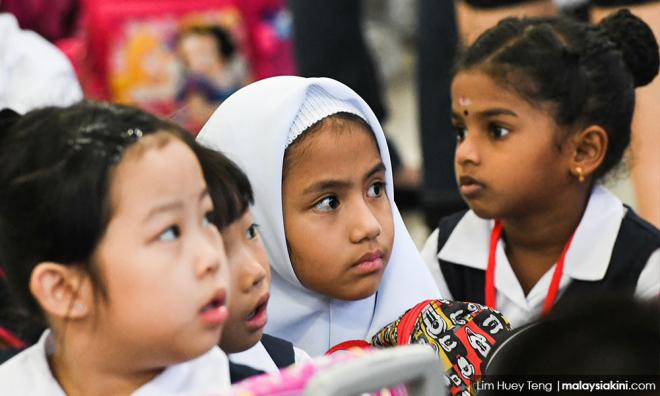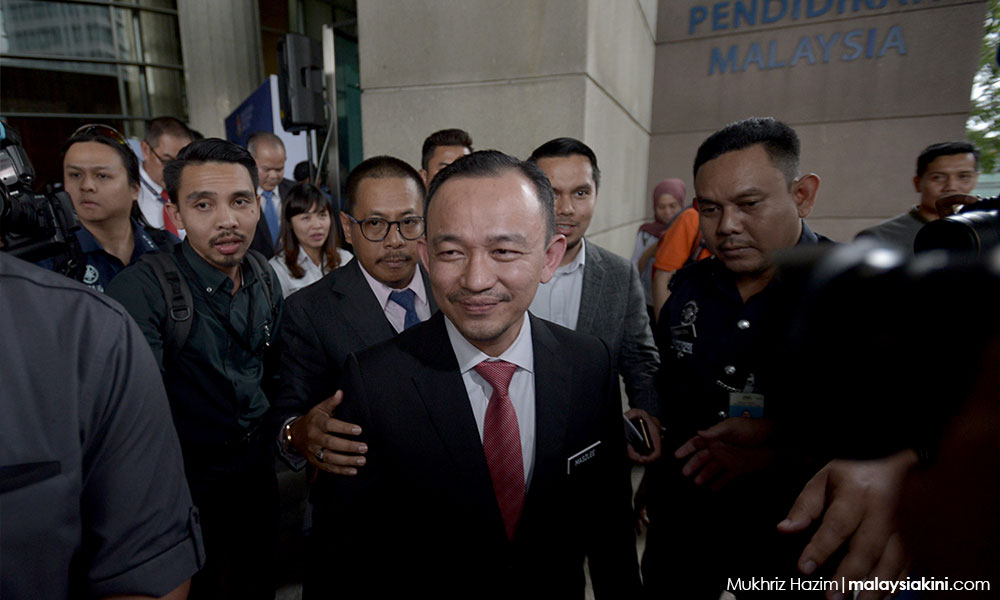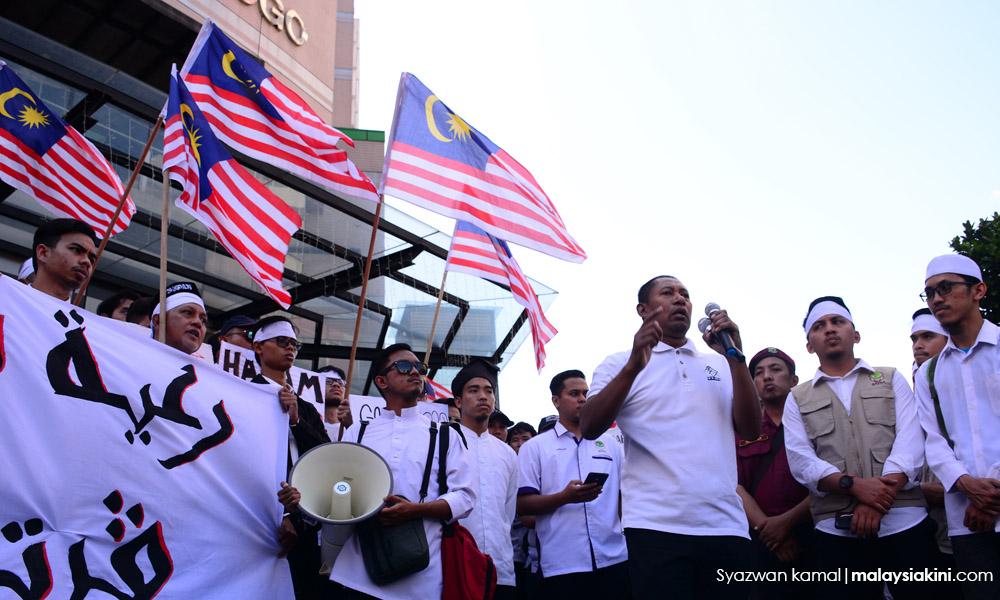
"We cannot humanise the future until we draw it into our consciousness and probe it with all the intelligence and imagination at our command. This is what we are now beginning to do." - Alvin Toffler The Futurists
Whether we are aware of not, we have been moved to a newer paradigm of living and learning and labouring. No longer we are at a historical juncture nor standing at the banks watching the rapids of technological progress run its course, we have been systematically plunged into an epoch of changing times - for better or for worse.
The information Age - much heralded by those who hold on strong to faith in technological progress - is here. It is now demanding us to be in harmony with our vision of a great society. A Malaysia that is imbued with social justice and equality, of people of different faiths and ethnic origins living in relative harmony or a government consisting of servant-leaders rather than big-time plunderers, and of a country in which Malaysians young and old can pursue the “Malaysia Dream”.
Forewarned of its advent by futurists of the '90s such as Alvin Toffler, John Naisbitt, Arthur C Clark, Herman Kahn and Peter Drucker, the age of “change, chaos and complexity”, of “future shock”, of “power shift”, of “managing in turbulent times” and of “becoming an electronically-wired society” signify the highest stage of post-industrial, post-capitalist and postmodern society.
Malaysia moved with awkward steps at every stage, first into the industrial stage, then into the post-industrial era and culminating into a new rhetoric of nation-building sloganised by the word “Vision 2020”. Across the board, the dimensions of change to be taken are systematically engineered by the political-economic elite to steer the nation through the tides of turbulent times.
Today, Malaysia is seeing the ugliness of the culture of unthinking developmentalism, of massive corruption committed by the robber-barons of the previous government, of new and improved emerging conflicts of race and religion that mirrors the problems brought about by nations marching towards Isis-Wahabi-type Islamic fundamentalism, a major issue of “transition of power” that is plaguing the core of the ruling coalition party (Pakatan Harapan), rendering it imploding at a fast rate destroying the confidence of the voters – these are some of the life-threatening diseases of Malaysia’s body politics of today.

Then there is the issue of the education system that has failed to forge a culture of collaboration between the major races. The minister of education, barely two years in office, was asked to leave the job for failing to reduce the influence of Islam in schools and for focusing on piece-meal and seemingly trivial pursuits of change rather than offering the nation a grand design of radical reform of the higher order of change, in preparation for Malaysia’s ushering into the new age of post-industrialism, environmental security, economic competitiveness and national resilience. A much needed-to-be-seen document of national reform in education was never provided.
At this sloganising year of 2020 – the year Malaysia is supposed to have been a progressive, culturally sane, economically strong, nationalistically resilient, liberal and, tolerant, and one blessed with a clean-efficient-trustworthy government – the country is not doing good at all. It is as if the slogan and the rhetoric of 2020 had become hemlock consumed by the nation, forced-fed by the old regime whose interest was to feed the engine of kleptocracy and sustain the culture of crypto-crony-conspicuous-capitalism defended to the death in the name of defending the rights of bumiputraism.
That is the plague that led to the black death of Malaysia’s Vision 2020.
Radical changes are demanded. Education is to be democratised, intellectualism mobilised, infrastructure efficiently developed and utilised, politics electronically centralised where those nuances are laced with the strengthening of our country’s superstructure -information technology.
Another phase of Malaysia’s “creative synthesis” has begun. In the most advanced sector of society, Vision 2020 is already here. Yet missing is the educational vehicle that is supposed to now bring it to the orchards of delightful plenty, the fruits of the labour of the people called “Malaysians”.
The question is clear. Where is Malaysia heading educationally? Did it plan for a fantastic journey to a sanctuary called 2020? And when the year is here, we still do not have a clear idea where we are going as a nation.

Meanwhile, race, religion and the greed of those in power rear their ugly heads all at once. Growing up through eight prime ministers and many education ministers, I am now seeing worsening goings-on in race relations and patterns of consumption. I do not feel that we are moving in the right educational direction.
If there is a term to describe the development stated above, it is that of “change, complexity, competition, and chaos” - the 4C’s. Like the 4C’s of the framework for a story - crisis, conflict, climax and conclusion - they permeate the consciousness of the mind of the Malaysian. It is a story of a Malaysia going downhill as a consequence of an unthinking education philosophy that is still trapped in the Bastille of our wrong sense of bumiputraism.
At times, the promises of technological progress ring true and other times, we are like spirits lost in the gamut of technological jargon and ideological confusion. At times, we seem to understand what vision 2020 means but other times we seem to be like deranged minds bombarded by unending Pepsi and Diet-Coca Cola commercials.
How do we make sense of all these changes and consciously be part of the national agenda of having moved gracefully towards a collective agreement of what Vision 2020 is supposed to be? What brand of thinking should we adopt to be intellectually prepared against the constant bombardment of ideologies sacred and profane and ultimately, to choose the ones closest to our heart’s desire?
What dimension of thinking should we adopt in order to select amongst the many currently marketed? What path of developmentalism should we take? Which one would synchronize best with our desire to build a regenerative and next, a sustainable future?
We seemed lost. Yet we were promised great things by the current regime. We are now left with shattered dreams, after being appeased with high hopes.
What must we do then? We do not even have a proper minister of education. We are a body politics without a head that we have chosen to become. In this, our much-heralded and trumpeted year of 2020.
AZLY RAHMAN is an academician, international columnist and author of seven books available here. He holds a doctorate in international education development and Master’s degrees in six areas: education, international affairs, peace studies, communication, fiction and non-fiction writing. He is a member of the Kappa Delta Pi International Honor Society in Education. Twitter @azlyrahman. More writings here. - Mkini



surah fajr bangla translation| সূরা আল-ফাজ্র | noor
ReplyDelete